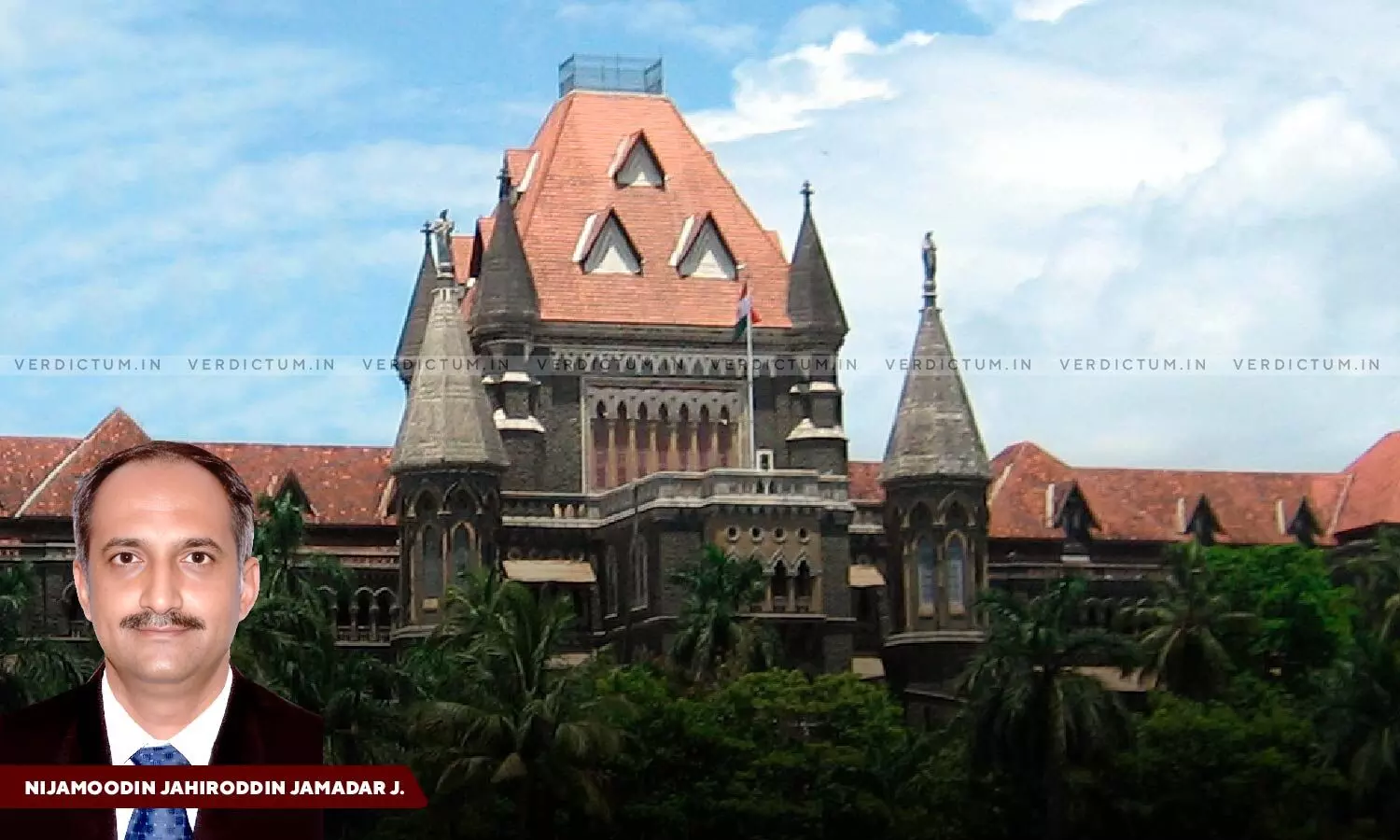
Section 56(1)(b) Of Maharashtra Police Act | Mere Registration Of A Number Of Offences By Itself Does Not Sustain An Externment: Bombay HC
 |
|The Bombay High Court held that the mere registration of multiple offenses does not automatically substantiate the grounds for an externment under Section 56(1)(b) of the Maharashtra Police Act, 1951 (Act).
The Bench of Justice N. J. Jamadar observed, “mere registration of a number of offences by itself does not sustain an externment under Section 56(1)(b) of the Act”.
Advocate Ganesh Gupta appeared for the Petitioner and Additional Public Prosecutor Geeta P. Mulekar appeared for the State.
The Petitioner challenged the externed order, issued under Section 56(1) of the Act by Deputy Commissioner of Police and the subsequent order by the Divisional Commissioner which reduced the externment period from two years to 18 months.
Crimes registered against the Petitioner in Mumbai led to a show-cause notice on July 9, 2022, citing pending charges and confidential witness statements. Despite participating in proceedings, the Petitioner provided no material for rebuttal.
The High Court's observation pertained to the acknowledgement of two confidential in-camera statements from witnesses, which detailed allegations of violence and robbery against the Petitioner. At the time when Respondent No.2 issued the externment order, the investigation into C.R.No.284 of 2020, involving charges under Sections 354, 354BD, 509, 323, and 504 of the IPC, was ongoing.
The Court noted that the Petitioner was subjected to externment under the provisions of Section 56(1)(a) and (b) of the Act, 1951. Recognizing the extraordinary nature of externment, which involves forced displacement and potential impacts on the individual's livelihood, the court emphasized the necessity for justifiable grounds to uphold such an order, strictly adhering to statutory provisions.
The Bench observed that under clause (a) of sub-Section (1) of Section 56, the externing authority must derive satisfaction from objective material indicating that the person's movements or acts are causing or are calculated to cause alarm, danger, or harm to a person or property. In clause (b), the Court emphasized the importance of objective material supporting the externing authority's subjective satisfaction that there are reasonable grounds to believe the externee is engaged or about to be engaged in offences involving force or violence.
The Bench observed that the mere registration of multiple offences is insufficient to justify externment under Section 56(1)(b). “The offences must either involve elements of force or violence or fall under Chapters XII, XVI and XVII of the Indian Penal Code. In addition, the externing authority must record satisfaction that the witnesses are not willing to come forward to give evidence in public against the externee by reason of apprehension on their part as regards the safety of their person or property”, the Bench noted.
Furthermore, the Court observed, “In effect, to sustain an action of externment under sub-clause (b), the offences the externee has engaged in must be under one of the Chapters enumerated therein and that the acts or conduct of the externee is such that the witnesses are terrified and dissuaded from giving evidence against the externee in public fearing safety of their person or property”.
The Court addressed challenges under Section 56(1)(a) and (b). Firstly, crimes listed did not fall under clause (b), and some were still under investigation on the date of the externment order. Secondly, the objection of the absence of a live link between filed cases and the externment order was significant. Cases were registered in 2019 and 2020, while externment proceedings started in July 2022, and the order was passed on January 24, 2023. The Court observed the necessity for a live link between the externee's acts and the externment action.
Lastly, the Bench noted the duration of the externment order, emphasizing Section 58's provision that the term shall not exceed two years. The Bench observed that the externing authority's failure to record reasons for the full two-year period and the absence of consideration for the duration of the externment order.
The Court observed that the appellate authority reduced the period to 18 months due to the absence of reasons justifying the full two-year externment and the non-application of mind in considering irrelevant cases.
Accordingly, the Court allowed the Petition and set aside the impugned order.
Cause Title: Imtiyaz Hussain Sayyad v The State of Maharashtra and Ors. (2024:BHC-AS:3094)